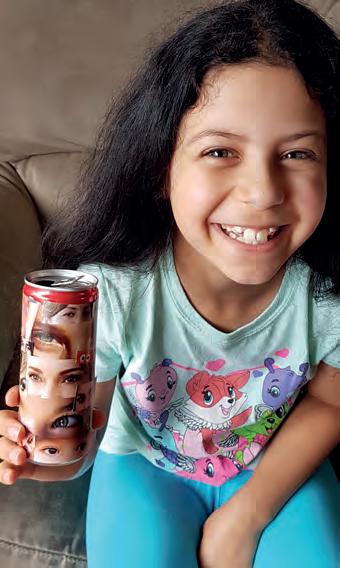
2 minute read
Alternative word choices to increase positivity
Alternative word choices to increase positivity
By Susie Ramroop
Advertisement
If you have had any exposure to coaching you will have heard about limiting beliefs - those ideas that we hold on to tightly and that frame our entire perspective of the world. They are set of rules that we live by and they are unique to us, although we might gravitate towards people who happen to share the same views. Limiting beliefs are unhelpful. They cement habits and thought patterns that keep us in repeated scenarios. They will rarely be empowering, although at some point we might perceive there having been a pay-off for having them.
How do we spot them? One way of becoming aware of these beliefs is through language. The words that we use are often a reflection of our inner thoughts, and some seem hardwired. “Never” and “always”, leave very little wriggle room, for example. The two words I hear the most around children and adults alike are “can’t” and “hard”, both of which can have a dramatic impact on our selfbelief, and our likelihood of getting what we want from life. Here are a couple of examples of how to handle the use of those words and what you can do instead:
Can’t When I was helping out on the scooter badge earlier this year at Beavers, I was challenging the children to do things that would demonstrate their skill; lifting their foot or their hands off as the scooter travelled at a perfectly safe speed. When
I described a slightly more complex combination move, they shouted “I can’t”. What they meant was they didn’t believe that they could. Using very clever language I got them to have a go, and sure enough they all did it. They were jumping for joy and with huge pride, high-fiving me and their friends. “Whether you think you can, or you think you can’t, you’re right” – Henry Ford When you’re child says they can’t do something. Ask them how they know. They will be stumped, and might just be willing to find out whether, indeed, they can.

Eye-can – a reminder to stay positive!
Hard
Adults use this word as often as children. By using it we are teaching them that it is normal. Each time they use it, it initiates another search for evidence that they are right! Swap out the word “hard” for “new” – this is viable 90% of the time. When something appears “hard”, what we are really acknowledging is that it is new – we haven’t done it before, perhaps we don’t know how to do it, and we aren’t certain that it will work out the way we want it to. Seeing something as “new” promotes curiosity and unlocks possibility rather than writing it off with “hard”. Avoid using this word in your language patterns full stop. Every time you do you will invite struggle, when things could be quite straight forward. When you hear your child use it, offer up the alternative of “new” – see the reframing happen before your very eyes.
Help to focus your children on what is possible rather than what they believe isn’t. This will create a much more openminded and experimental approach, one that can help them to navigate their way to what truly brings them joy, and where their biggest potential lies. Try this – it will do exactly the same for you too.
Susie Ramroop is a Mindset Coach helping busy parents to focus on what truly makes a difference in life and at work. Please send any comments and questions to susie@susieramroop.com. www.susieramroop.com



